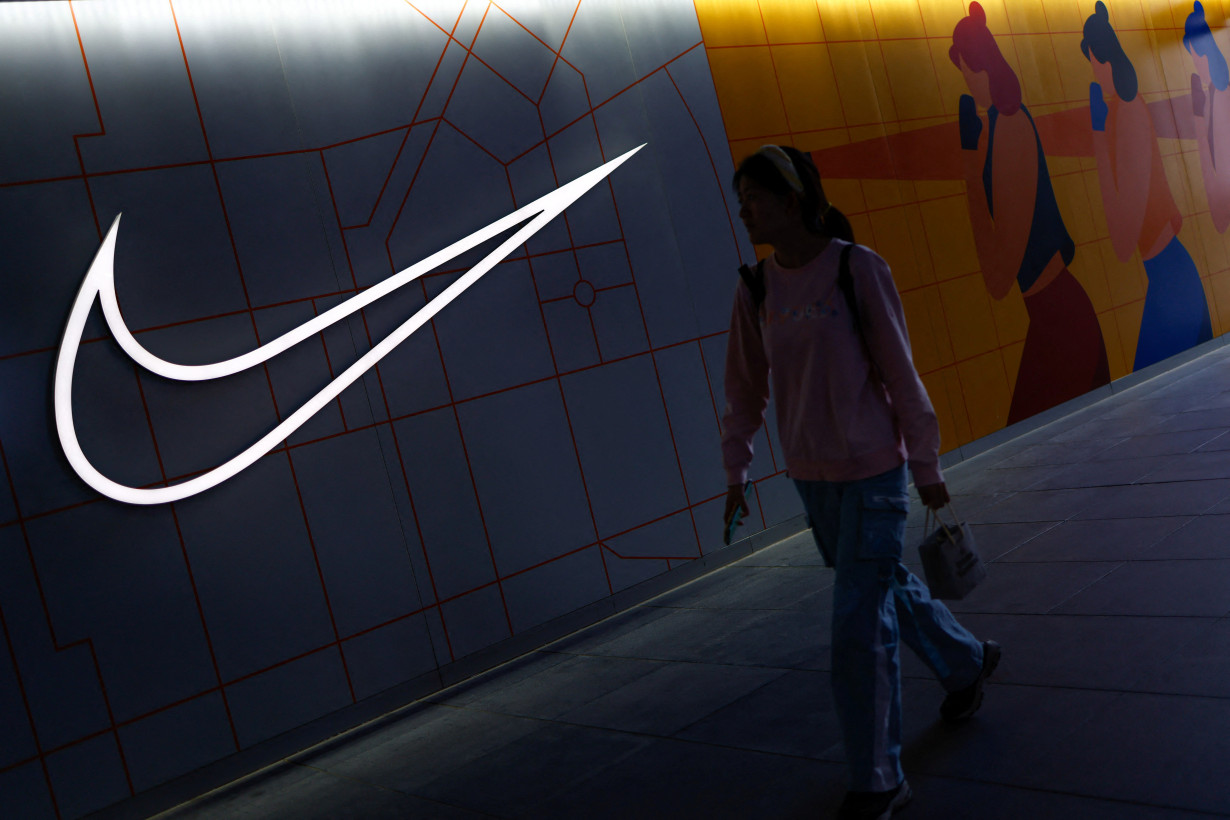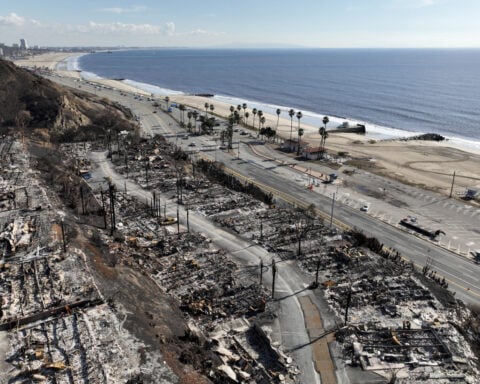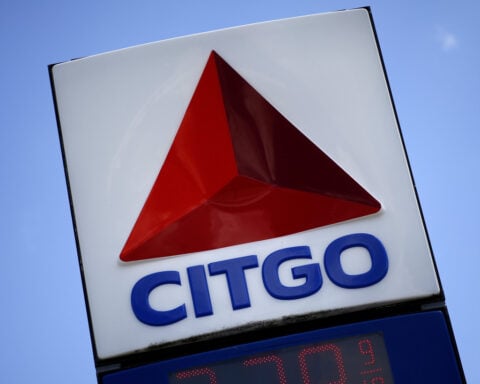By Juveria Tabassum and Lisa Baertlein
(Reuters) -So many U.S. companies rushed in goods to avoid President Donald Trump's threatened tariffs that imports soared to near-record levels in recent weeks. Now, retailers and other importers are hitting the brakes, awaiting clarity on where the new duties will land.
U.S. import bookings on massive container ships dropped 64% from March 24-31 to April 1-8, the week when Trump announced "reciprocal" tariffs on a swath of countries, container-tracking software provider Vizion said.
The start-and-stop of Trump's threatened tariffs - including Wednesday's pause on newly imposed tariffs, excluding China - is paralyzing that trade, retailers and transportation executives say.
Retailers, which would normally be readying plans for the crucial winter holidays, have not placed their usual orders for Christmas decor from Chinese factories. Amazon is reportedly canceling some summer season orders from China. And, the retail industry trade group that counts Walmart and Target among its members forecasts a sharp drop in U.S. imports in the second half of 2025.
"It's a tough environment to operate in because there's no certainty around what's happening or not happening," said Lee Mayer, CEO and founder of Denver-based Havenly Brands, which owns furniture retailers like Burrow and The Citizenry.
"There's a lot standing in place. No one wants to talk costs yet. No one wants to talk re-sourcing yet," said Mayer, whose brands have been importing more furniture from Vietnam and Cambodia and have been lessening dependence on China.
Trump on Wednesday put a 90-day hold on his "reciprocal" tariffs, including 46% on Vietnam and 49% on Cambodia, less than 24 hours after they were imposed.
But in a show of brinkmanship, he hiked duties on China-made goods from 104% to 125% - escalating a battle between the world's largest importer and the world's largest exporter that has global financial markets on edge.
Mayer moved quickly, placing orders with factories in Vietnam and Cambodia. "If it truly is only 90 days, we need to get stuff in," she said, adding that her orders from China remain "fully paused."
Retailers from Nike to Best Buy are exposed to Trump's trade war because they rely on key manufacturing hubs including China, Vietnam and Indonesia.
Amazon.com, the world's largest online retailer, canceled orders for beach chairs, scooters and air conditioners from China and other Asian countries, to reduce the financial hit from Trump's new tariffs, Bloomberg reported on Wednesday, citing people familiar with the matter.
Amazon did not immediately provide comment.
Mayer and other retailers, including import-dependent sneaker sellers, plan to work off stockpiled inventory while the dust settles.
"The other thing we're trying to do is maintain a little bit of composure until this shakes out," she said.
Shortly before the Trump administration announced the reprieve on "reciprocal" tariffs, the National Retail Federation (NRF) and Hackett Associates forecast containerized import cargo volume would drop at least 20% year-over-year in the second half of 2025.
That was based on Trump's now paused tariffs. At the time, tariffs on China were 104%. NRF said it would not revise that forecast.
"Retailers have been bringing merchandise into the country for months in attempts to mitigate against rising tariffs, but that opportunity has come to an end," said Jonathan Gold, NRF vice president for supply chain and customs policy.
The second half of the year sees crucial shopping seasons for retailers such as the back-to-school and Thanksgiving to Christmas periods.
"The back-to-school period is typically a major sales opportunity for them and will likely be the first time that the tariff effects will show up," Sheraz Mian, director of research at Zacks Investment Research said.
(Reporting by Juveria Tabassum in Bengaluru; Editing by Maju Samuel, Alistair Bell and Cynthia Osterman)

 Trump has begun another trade war. Here's a timeline of how we got here
Trump has begun another trade war. Here's a timeline of how we got here
 Canada's leader laments lost friendship with US in town that sheltered stranded Americans after 9/11
Canada's leader laments lost friendship with US in town that sheltered stranded Americans after 9/11
 Chinese EV giant BYD's fourth-quarter profit leaps 73%
Chinese EV giant BYD's fourth-quarter profit leaps 73%
 You're an American in another land? Prepare to talk about the why and how of Trump 2.0
You're an American in another land? Prepare to talk about the why and how of Trump 2.0
 Chalk talk: Star power, top teams and No. 5 seeds headline the women's March Madness Sweet 16
Chalk talk: Star power, top teams and No. 5 seeds headline the women's March Madness Sweet 16
 Purdue returns to Sweet 16 with 76-62 win over McNeese in March Madness
Purdue returns to Sweet 16 with 76-62 win over McNeese in March Madness








